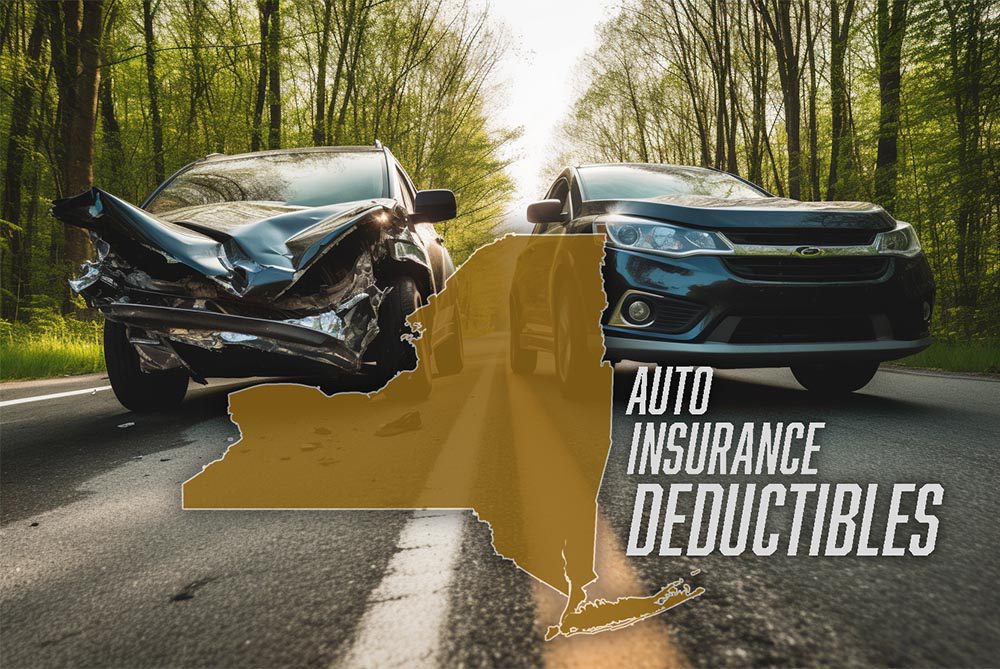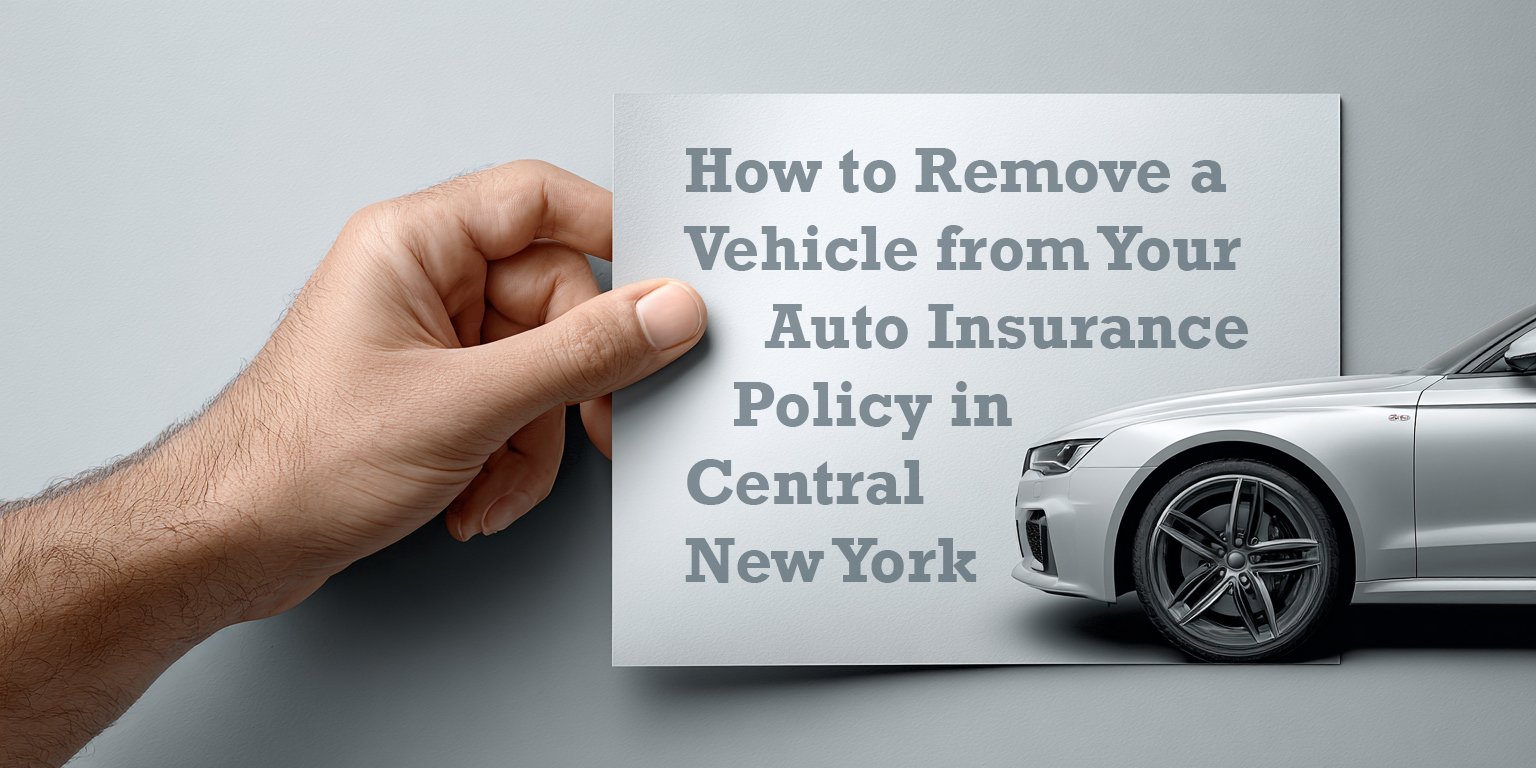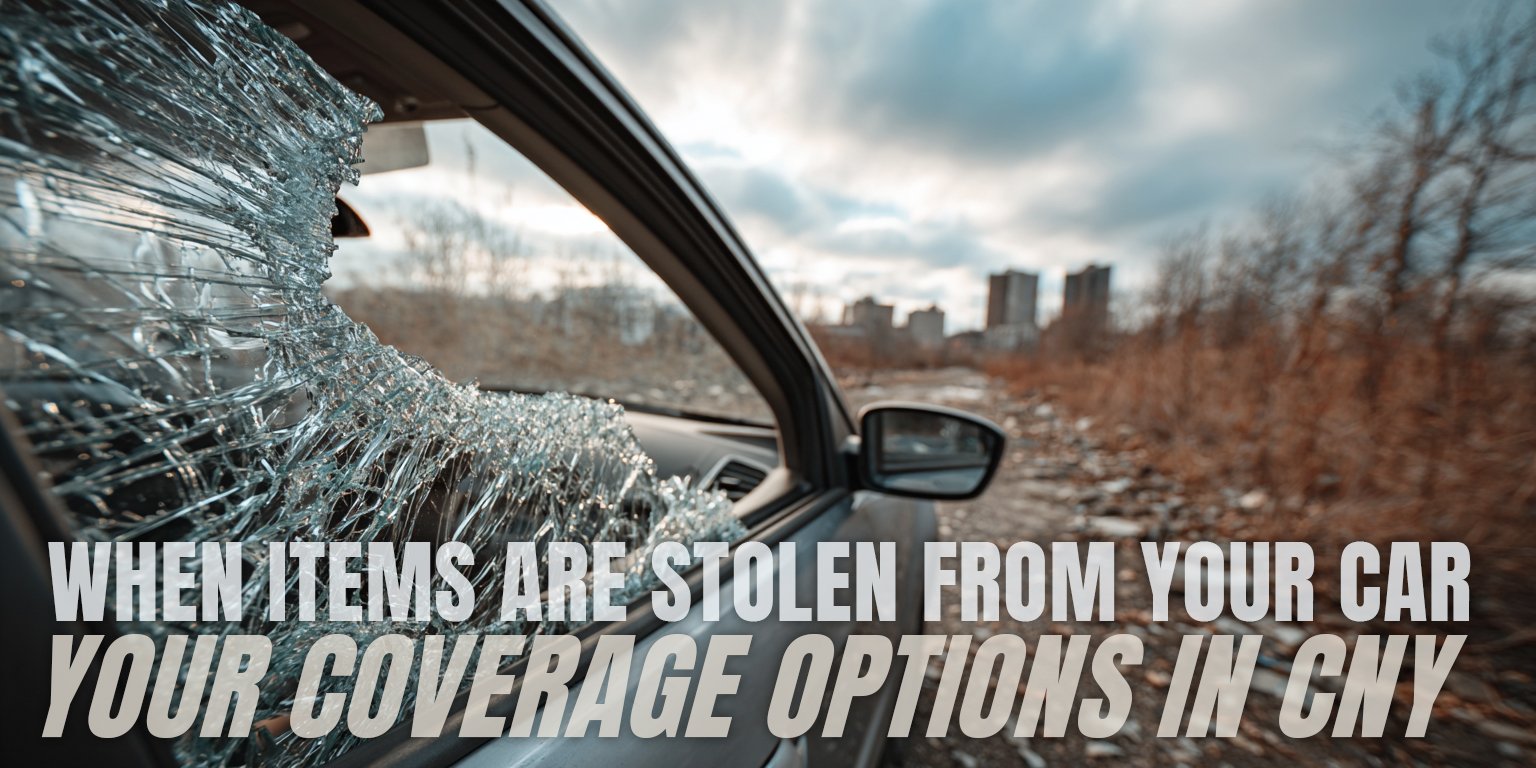How Auto Insurance Deductibles Work in New York State
May 22nd, 2023
4 min read

Choosing the wrong auto insurance deductible can leave you paying more than expected when you need to file a claim. This often happens when you select a high deductible without considering your budget, face loan or lease restrictions on your deductible choices, or discover a personal injury protection (PIP) deductible you weren't aware of.
Many New York State drivers struggle with understanding how deductibles work and how they affect both premiums and out-of-pocket costs during claims. Without clear information about your options, you might choose a deductible that doesn't fit your financial situation.
The Horan insurance agency helps Central New York drivers understand their deductible options across different coverage types. We work with multiple carriers to help you explore deductible choices that align with your budget and coverage requirements.
In this article, we'll cover what auto insurance deductibles are, how they function with different coverage types in New York State, and factors to consider when selecting deductible amounts that work for your situation.
What Are Car Insurance Deductibles?
If you ever bought a car, home, or health insurance policy, you’ve likely come across a deductible. But if you’ve never filed an insurance claim, you may not have experienced how it works. So, let’s explain what a deductible means.
A deductible is a specific amount of money you need to pay before your insurance coverage begins. Usually tied to auto or health insurance, deductibles are the financial buffer between you and the carrier.
Health insurance deductibles typically reset on a yearly basis, while auto insurance deductibles typically reset after each claim. This means that if you have an accident and your car is damaged, you’ll have to pay your deductible again if you have another accident in the same year.
There are some exceptions to these general rules. For example, some health insurance plans have a “continuous deductible” feature, which means your deductible doesn’t reset if you don’t have any medical expenses in a year.
Additionally, some auto insurance companies offer “accident forgiveness” programs, which can waive your deductible if you have a clean driving record and are not at fault for an accident.
 Understanding Deductibles on Auto Insurance
Understanding Deductibles on Auto Insurance
Three types of New York auto insurance coverages may have deductibles:
- collision
- comprehensive, and
- personal injury protection (PIP)
Collision
Collision coverage helps pay for damage to your car if you hit something while driving. You always have to pay a deductible before the insurance company pays toward the rest of the claim. The higher your deductible, the lower your premium, but also the more you have to pay out of pocket.
Comprehensive
Comprehensive coverage helps pay for the damage to your car caused by something other than a collision, such as a tree limb falling on your hood. It works the same way as collision coverage: you pay a deductible first, and then the insurance company pays toward the rest.
Personal Injury Protection (PIP)
Personal injury protection (PIP) coverage helps pay for the medical expenses of you and your passengers if you’re injured in an accident. It also covers pedestrians you may hit with your car.
In New York State, PIP coverage is mandatory and may have a deductible. This means you may have to pay some of the medical bills yourself before the insurance company contributes to costs. This can be an unexpected expense for many people who don’t know about it.
Factors to Consider When Choosing an Auto Insurance Deductible
You have some flexibility in choosing your deductible amount, but there are some limits and factors to consider, such as these:
- Most insurance companies offer deductibles ranging from $100 to $2,000 for comp and collision coverages. Some may go higher, but that’s rare.
- If your car is financed or leased, you may have to choose a lower deductible. Most lenders require you to have comp and collision coverages and limit your deductibles to $1,000 or less. For leases, the limit is often $500.
- Your deductible affects your premium. The lower your deductible, the higher your premium because you’re shifting more risk to the carrier. The higher your deductible, the lower your premium, but also the more you have to pay if you make a claim.
- Deductibles are usually in multiples of $50 or $100. The most common options are $250, $500, or $1,000. You can’t choose an odd number like $327.
- You can have different deductibles for comp and collision coverages. Some people prefer a lower deductible for comprehensive coverage, which covers non-collision damage such as falling objects or vandalism. You can also have different deductibles for different cars on your policy.
- Glass coverage is part of comprehensive coverage and may have a separate deductible. Many people opt for a zero-dollar deductible for glass coverage, so they don’t have to pay anything if their windshield breaks. However, you should check with your agent or policy to make sure you have this option; otherwise, your glass claim will be subject to your comprehensive deductible.
For more information on comp and collision coverages, read our article explaining the differences between them.
How PIP Insurance Works in New York
Personal injury protection (PIP) insurance provides coverage for your medical expenses and those of your passengers in the event of an accident, regardless of who was at fault, which is why it is also referred to as “no-fault” insurance.
PIP also covers pedestrians who are hit by your car. PIP is the first coverage used for medical bills before your health insurance kicks in.
In New York, you’re required to have personal injury protection (PIP) insurance, which may have a deductible. The maximum deductible for PIP is $200 per person. For example, if three people in your car needed medical care, you would have to pay $600 out of pocket. This applies even if you’ve met your health insurance deductible.
The PIP deductible is the same for all the cars on your policy. You can choose to waive the PIP deductible and have no out-of-pocket costs for medical claims. This can be valuable because the savings from having a deductible are very small.
However, some insurance companies and agents may add a PIP deductible to your quote or policy by default, so you should check carefully and ask to remove it if you don’t want it.
Learn more about personal injury protection/no-fault insurance by reading our comprehensive article about PIP.
Making Informed Deductible Decisions for Your Auto Insurance
Without understanding how deductibles function, you might choose amounts that don't align with your budget or risk tolerance. This could result in unexpected out-of-pocket expenses during claims or paying higher premiums than necessary for your situation.
You might overlook important factors like loan or lease requirements that limit your deductible choices. You could also remain unaware of optional PIP deductibles that add unnecessary costs to your medical claims.
By applying the information in this article, you can select deductible amounts that balance your premium costs with your ability to handle out-of-pocket expenses during claims. You've learned how different coverage types work with deductibles and what factors influence your choices.
Understanding these details helps you make decisions that align with your financial situation and coverage requirements. You can work with your agent to customize your policy based on your specific needs and budget considerations.
The Horan insurance agency can help you evaluate different deductible options and their impact on your auto insurance costs. We work with multiple carriers to provide various choices and can explain how different deductible combinations affect your premium and claim experience.
Click the Get a Quote button below to discuss your deductible options with one of our licensed agents. We can help you understand how different choices might work for your specific situation and budget.
You can also learn more about auto insurance by reading our comprehensive guide. It covers topics such as coverages, discounts, and tips for saving money.
Daniel is an accomplished content creator. He has been working in publishing for almost two decades. Horan Companies hired Daniel as its content manager in November 2022. The agency entrusted its messaging to him. Since then, Daniel has written insurance articles, service pages, PDF guides, and more. All in an effort to educate CNY readers. He's helping them understand the world of insurance so they can make informed decisions.
Topics:



























